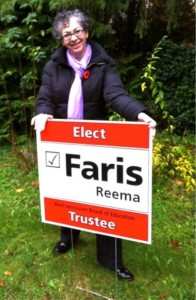Posts Tagged ‘media’
Do I Want To Know?
Ignorance is bliss.
Or so they say.
And as we hurtle through the German countryside, on this train voyage from Berlin to Frankfurt, on the last leg of our summer adventure abroad, I believe it may be true.
Throughout this trip, I’ve had access to wireless connections and have checked my email regularly, followed Facebook postings and Twitter messages, but not to the same extent I do at home.
I haven’t read the newspaper each morning, I haven’t listened to broadcast news, and I haven’t been voraciously consuming the ups and downs of world events, whether trivial or significant. It helps that many of our accommodation spots have not provided access to a television or that we’ve been too busy exploring to watch.
So while I’ve been connected, I haven’t been obsessed and that’s opened room in my thoughts and daily experience to a stronger sense of well-being.
Which is an odd place to be for someone who is an advocate of digesting information regularly, of learning, of being aware that the world is so much more than our immediate circles of influence.
So if ignorance is bliss, why bother with education?
In thinking about this question, I realize how value-laden the field of education is as is the contemplation of what constitutes the qualities of our existence as social beings.
We talk about believing in better, but what’s better?
We talk about the value of knowledge, but what is knowledge?
We talk about leading good lives, but what constitutes a good life?
In addition, as I contemplate the historical record (traveling in Europe seems to make history somehow more real and pressing), I realize that crimes and atrocities, throughout the centuries and in our own day, are or have been committed by well-educated people.
Education has not acted as a barrier to tragedy, war, deprivation, suffering, inequality, and injustice.
And while I have a feeling the key is to keep asking questions rather than settling on fixed answers, there is one conclusion I feel able to draw with some certainty.
The most important result of education is to enable people to become and to be critical thinkers. And while the search for consensus may be integral to making progressive changes (what is progress? why change?), individual voices are needed now more than ever as is tolerance for different points of view.
And that’s a troubling aspect of political life in Canada and elsewhere along with the evolution of our mainstream media systems. It seems the goal is to manipulate citizens into thinking en masse by removing dissension and erasing individuality.
I can’t help feeling that we should – at this point in time and with the lessons of history – know better.
Ignorance may be bliss, but, as my nephew says (he’s recently graduated from the University of Bradford Peace Studies Department) “blissed” ignorance is not just.
Perhaps that’s the ultimate purpose of education then: to establish, maintain, and sustain just societies.
If so, let’s get on with it.
Why Women’s Rights Are An Education Priority
Here are some numbers I came across while preparing for an upcoming presentation:
- Women constitute 53% of the world’s population and own 1% of the wealth
- Women still earn 20% less than men
- In Canada, women occupy only 11% of the seats on corporate boards
- Of the 308 parliamentary seats in Canada’s House of Commons, only 68 (22%) are filled by women
- According to the New York-based Women’s Media Centre, only 3% of media decision makers are women
- In the 2010 Report on the Global Gender Gap issued by the World Economic Forum, which assesses criteria such as employment equity, health care, and political representation, Canada ranked #20 — a free-fall from #7 in 2005 — putting our country behind the US for the first time ever in terms of its treatment of the female population.
What does this all mean?
I think it means that even in our developed Western world, where gender inequalities are not as apparent as they may be elsewhere, there’s a lot of work to do in sustaining women’s rights and in working towards a better, more just society. There are worrying indications and further support to be found for this need in articles such as this one from The Globe & Mail on the reduction in the number of women appointed to the judiciary.
My focus here is not to talk about the broader social policy issues — at least not today — but I would like to address what I think this may mean in terms of educating young men and women, boys and girls.
Let’s look at what some consider the three levers of our modern society — money, politics, and the media — and some subject areas or topics which could be incorporated into or emphasized in the curriculum.
Money
On the premise that the more you understand money and how it works, the better you’ll manage your own financial situation. Are we teaching enough about:
- financial literacy and budgeting?
- economics and the history of financial economics?
- how to contend with the lure of consumerism?
Unless you learn why politics is important, how our system works, and its history, you’ll never see or understand the relevance to you and the world you live in.
- Why aren’t K-12 students exploring elections as they happen? In our community, students from Capilano University helped to run the All Candidates Meeting hosted by the West Vancouver Chamber of Commerce (Trustees were not included in the official proceedings). However, as far as I know, none of the municipal candidates were invited into schools to talk to students or to answer questions. If our intent is to improve the engagement of youth in the electoral process, why not take advantage of real life situations when they are current and relevant?
- Is the history of the struggle for women’s rights highlighted when Canadian history is being taught?
- Are biographies or autobiographies of Canadian women included on reading lists for social studies courses or even as examples of non-fiction in English or French language classes?
Media
It surrounds us, it influences us, it continually evolves and changes. In a recent CBC documentary, Naomi Wolf, author of The Beauty Myth, says she finds media images of women getting worse, reinforcing unrealistic expectations and norms. Are we doing enough to educate students about the media — advertising, movies, music videos, song lyrics, newscasts, etc. — and the influence it has on our behaviours and attitudes? Did you know that misogynist comments on-line are starting to drive female journalists and bloggers off-line according to a recent article in the UK newspaper, The Guardian. Women’s voices need to be heard and represented, not shrouded in the silence of earlier eras that would negate the work of great Canadians such as Henrietta Muir Edwards, Nellie McClung, Louise McKinney, Emily Murphy, and Irene Parlby. http://archives.cbc.ca/on_this_day/10/18/
There are many other ideas and initiatives we could pursue and explore. Paying attention to these three areas would be a start because the issue of women’s rights is an issue of human rights — not just abroad, but here at home.

